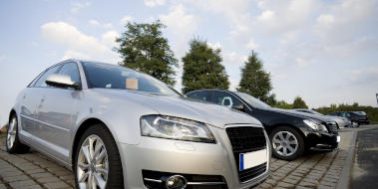Buying a second-hand car can save you lots of cash, but you need to be careful. There are some unscrupulous people out there who might rip you off given the opportunity. Bear in mind that if you buy a second-hand car privately, you don’t have the same protection as when buying from a dealer.
But don’t let this put you off. If you come prepared, know the right checks to carry out and the right questions to ask, you can buy with confidence and land a great deal in the process.
Car checks
It’s not enough to give the car a once-over. You need to check everything thoroughly, from the paintwork to the seatbelts. Make sure you pay attention to the following:
Mileage
Check the car’s mileage. On average, cars cover 10,000 miles a year, so if the odometer’s mileage figure doesn’t match the car’s age, ask why. If you don’t get a straight answer, you may be looking at a ‘clocked’ odometer. You can check the mileage noted on the last service to see if it’s in line with the current figure.
Accident damage
Are there inconsistent gaps between panels or mismatched colours in the paintwork? These are telltale signs that repair work has been carried out. Look for traces of paint spray on handles, window seals or plastic mouldings. Also check under the bonnet for unusual welding work.
Safety
Do the tyres have the correct specification and dimensions for the car? Are they in good condition? Check the tread – cars with less than 3mm of tread will need to be replaced soon. Do the seatbelts work correctly? Make sure there are no signs of cuts or fraying in the seatbelts. Lastly, if airbags are fitted, check that the warning lights are working properly.
Fluid levels
Open the car bonnet and check the levels of the oil, brake and power steering fluid. If any of these are low, it’s possible that the car hasn’t been regularly maintained. Check for signs of oil leaks under the bonnet, and under the car itself.
Engine
Start the engine from cold. Do you hear any abnormal noises? Does the oil warning light go out when the engine starts? Are there excessive exhaust fumes? Check the catalytic converter is in good condition by asking to see a recent emissions test. The test should confirm that the car’s emissions are within the standard limits set for modern cars.
Test drive
Take the car on a test drive. Check that the clutch, transmission, steering and brakes are all working properly. Confirm that all the warning lights are operating normally.
Document checks
When buying a second-hand car, the most important document you need is the V5C, also known as the registration document or log book. Verify that the make and model of the car you’re buying and the number plate matches what’s on the V5C.
Check that the Vehicle Identification Number (VIN) on the V5C matches the VIN on the vehicle, which is displayed on the driver’s side of the dashboard.
Lastly, check the car has a valid MOT certificate. The certificate will record any advisories that the tester has recommended. See if these have been fixed. A good seller will rectify all outstanding issues before putting their car on the market, and you should be cautious if they haven’t.
Need some advice on buying a second-hand car? Ask our friendly experts at Double Dee Autos. We’ll be delighted to answer all your questions. Just give us a call on 020 8460 3040.

